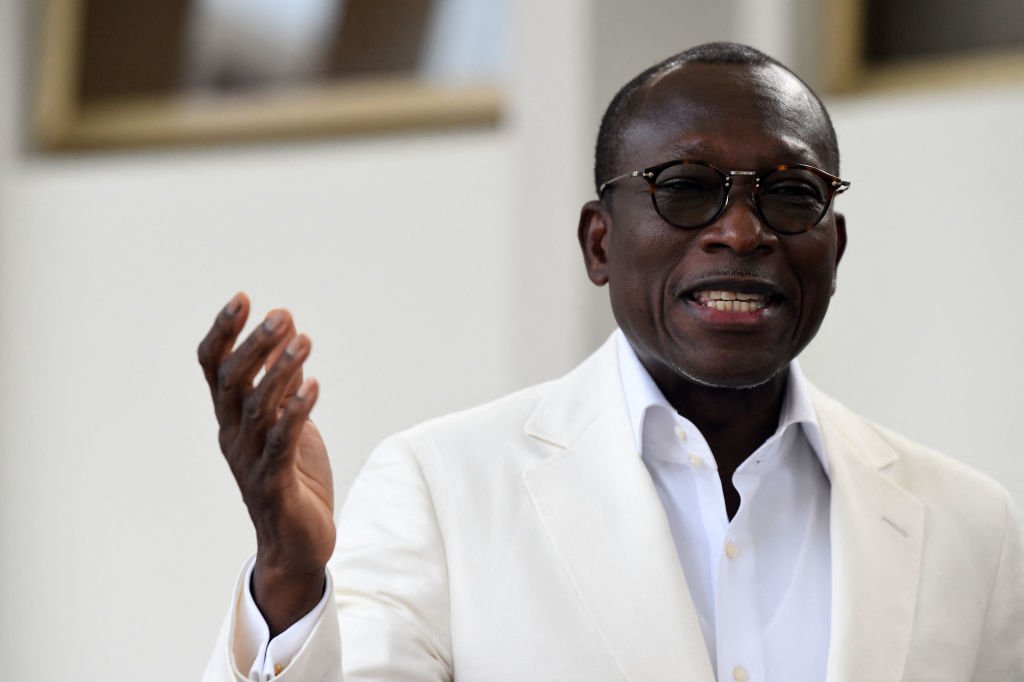Au Bénin, l’opposant Joël Aïvo, condamné à dix ans de prison, dénonce une « vengeance politique » https://t.co/9weberVpPk
— Le Monde (@lemondefr) December 7, 2021
Association
Prosecution of opposition members
In December 2021, a special court - the Economic Crimes and Terrorism Court (CRIET) - convicted and sentenced two opposition leaders to heavy prison sentences. Former Minister of Justice, Reckya Madougou, of opposition party Les Démocrates (LD), was sentenced to 20 years in prison for 'complicity in terrorist acts', while law professor and constitutional expert Joël Aïvo was sentenced to 10 years in prison for 'threats against state security' and 'money laundering'.
Both were previously barred from running in the controversial presidential elections in April 2021. As a result of disputed electoral reforms, only three candidates were eligible to run for president. Main opposition leaders were either in exile, under arrest, charged with various offences and crimes or declared ineligible to run. As reported previously on the Monitor, several opposition members had been arrested, summoned, charged or condemned prior to or surrounding the presidential elections on 11th April 2021.
Critics have accused the special court, CRIET, of being used as an instrument by the Patrice Talon administration to crack down on the opposition.
Good governance activist released from prison
On 18th January 2022, good governance activist Jean Kpoton was released from prison after having served his prison sentence of one year. The activist was arrested on 13th January 2021 and charged with 'harassment by means of electronic communication' under the Digital Code for having claimed, on Facebook, that the car that president Talon used for a cross-country tour cost six million CFA francs (9,660 USD). On 9th February 2021, Kpoton was sentenced to one year imprisonment and a fine of 200,000 CFA francs.
National Human Rights Commission concerned about violations against LGBTQI+ people
In its annual report, issued in December 2021, the National Human Rights Commission noted its concern about "physical and sexual assaults, arbitrary detention, torture and inhuman and degrading treatment observed recently in Benin against Lesbians, Gays, Bi-sexuals, Transgenders, Queers, Intersex and others (LGBTQI+)".
According to Amnesty International, police officers beat with sticks and machetes, stripped and photographed a transgender woman on 4th February 2022, who was forced to remain naked during her detention of three days. The women and three transgender friends were reportedly first attacked and assaulted by motorbike taxi drivers and residents, before she was taken by force to the Pahou police station. In April 2021, three transgender women were forced to undress and were beaten by a group of men in Cotonou. The men filmed the attack and shared the video on social media. On 30th June 2021, one of the men was convicted of assault and battery and sentenced to 12 months in prison, with six months suspended. Amnesty further noted that three LGBTQI+ organisations had received threats after publicly defending the three women.
Peaceful Assembly
Public meeting to protest high cost of living
On 18th February 2022, the Confederation of Autonomous Trade Unions (CSA-Bénin) and five other trade unions organised a public mass meeting at the Bourse du Travail in Cotonou to protest against the high cost of living and "salaires de misère" (poverty wages). The mass meeting comes against the backdrop of a new General Code of Taxes, which was approved by Benin's National Assembly in December 2021. According to Anselme Amoussou of CSA-Bénin, life has never been this costly in Benin.
